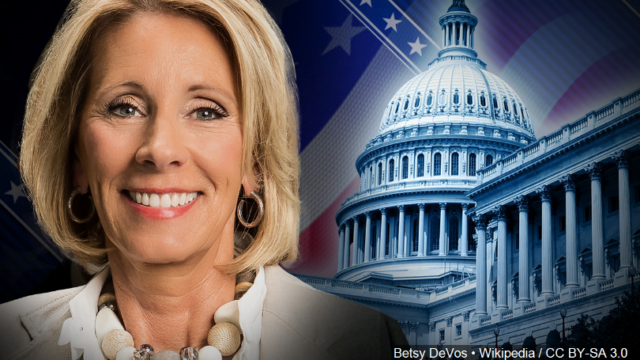Trump’s Immigration Reform Fights for American Workers
Is it outlandish to say that the welfare of Americans should come before the welfare of potential immigrants in the actions of the American government?
No. Of course not.
It is reasonable, rational and what almost every other country does without all the name-calling we get from the progressive left in this country. Some European countries recently tried magnanimity over the protection and welfare of their citizens and their citizens have paid a steep and deadly price. Wrong choice.
America has been increasingly throwing the door open to wrong legal immigration in the front door, while leaving the back door unlocked for massive illegal immigration. The result has been a predictable stew: of the diminishment of American culture that was, and amazingly still is, the envy of the world; of overburdened public facilities (including hospitals and schools); of stagnant incomes; and of a growing entitlement mentality for many of those sneaking in the back door.
While the ruling amalgam of coastal elites, big businesses and Washington smarmies have enjoyed this arrangement for various reasons, most Americans have witnessed the damage in real life. This was the first and biggest issue that President Trump tapped into and that propelled his election.
He has slowly started delivering on locking the back door: Building the wall to stop the endless flow of illegal immigrants.
On Wednesday, Trump unveiled his immigration reform for the front door with U.S. Senators Tom Cotton and Dave Perdue, entitled the Reforming American Immigration for Strong Employment (RAISE) Act.
The devil is always in the details of this sort of legislation, but it is promising on the surface and it keeps another Trump promise. For all of his personal peccadilloes, the man does seem to be keeping his promises, and that’s good for the American people.
Of course the problem will be the faux Republicans in the Senate and getting past a Democratic filibuster. That will require 60 votes, but if they do, they should have to do it the old-fashioned Mr-Smith-Goes-To-Washington way — stand there and keep talking constantly.
Rightly done immigration is necessary
Immigration is a powerful engine for economic growth, but wrong immigration has been a recipe for low wages at the bottom and middle parts of the income scale, high governmental costs and faster growing wages at the top end of the scale.
And there is wrong immigration. We’ve been practicing it for decades and are reaping the results.
The unofficial, bipartisan policy of the Washington smarties the past 30 years or so has been a de facto open border with Mexico that allows somewhere between 11 million and 20 million illegal immigrants to sneak in here and work, live and enjoy the benefits of this country without assimilation or legal contribution. Talk about cultural appropriation!
However, they are allowed to keep sneaking in with a wink and a nod because politicians have opposed enforcing U.S. immigration laws — largely for their own personal, political futures. Sure, we have some fencing and a Border Patrol and we do stop some and send them back — about 250,000 annually. But even those come right back again and eventually get through. President Obama made it much easier by enacting “catch and release,” meaning we did not send them back at all, but released them into America with a promise to show up at a court date in the future. Needless to say, they didn’t, and no one expected them to anyway. It was more flouting of American law.
In the rest of the picture, we have legal immigration that takes many years and is an arduous and expensive journey. But because we are controlling it, we are getting immigrants that as a batch are more capable of not only improving their own lives, but those of other Americans.
In 2014, 29 percent of the 36.7 million immigrants ages 25 and older had a bachelor’s degree or higher, compared to 30 percent of native-born adults. While that lines up nicely with the existing American population, the bottom end still does not: 30 percent of immigrants lacked a high school diploma or GED certificate compared to 10 percent of native-born Americans.
What this overall picture shows is that we allow — legally and illegally — millions of low-end workers into the country, and that has enormous consequences for low- and middle-income Americans and eventually for economic growth. That is what is being fixed in this reform.
The “compassion” deceit
The conceit of quasi open borders is that we are a “compassionate” nation. Well yes, that is indisputable by nearly every definition of charity — at home and around the world. Of course in this case, compassion emanates from people who will never be negatively impacted by wrong immigration but will most often gain from it personally. So it’s a bit lame.
In the meantime, while letting millions of poor, unskilled, illiterate immigrants into our country may play as showing compassion toward them, it is demonstrably not showing compassion toward tens of millions of poor Americans.
Consider: Millions of uneducated, unskilled and illiterate immigrants from south of the border come to America seeking a better life — or for many, just income to send money back “home.” The economics is undeniable: Their very presence not only blocks many Americans trying to get a foothold in the workforce, but also depresses the low end of wages for those jobs.
The canard of jobs “Americans won’t do” are actually only jobs Americans won’t do at the prevailing wagesset by wrong and illegal immigration. Without all those immigrants — legal or illegal, but most are illegal — low end wages would inevitably rise to meet demand. Perhaps a lot. And that would push up middle incomes as well.
Professor George Borjas, at the Harvard Kennedy School of Government, writes: “Wage trends over the past half-century suggest that a 10 percent increase in the number of workers with a particular set of skills probably lowers the wage of that group by at least 3 percent.”
That is invaluable information and explains part of wage stagnation while also explaining the big social bogeyman in American politics: income inequality. And it is due to both illegal immigration and wrong legal immigration.
The RAISE Act reforms some errors
Americans have long admired and desired merit-based systems. They understand that too often that is not the case — in unionized schools, certainly in Congress, in the welfare system.
But the remnants of rugged American individualism know that is still the right path forward. And Trump and the Senators’ plan does just that by creating a more merit-based legal immigration system.
The RAISE Act would dramatically reduce low-skilled immigration (which we already have far too much of) while overhauling the system for skilled immigration and cutting low-skilled immigration by more than 40 percent immediately. That may be more than is necessary, but those are quibbles in the big picture.
It ends the absurd “diversity” lottery to get more immigrants from countries that do not send as many — mostly from Africa. And crucially important, it eliminates most of the abused system of preferences for family members — aside from spouses, minor children and elderly parents who need care. So no more brothers, sisters, parents, aunts, uncles, cousins, the butcher, baker and candlestick maker being allowed to come in because of one person here — legally or illegally.
The RAISE Act creates a system for those seeking green cards to be awarded on the basis of employment via a new point system similar to those used in other Western countries, such as Canada and Australia. Points are earned by level of education, English fluency (yes!), their age, the salary they’ve been offered, and, if an applicant wants to bring a spouse, the spouse’s education, age, and language skills also. Further, immigrants allowed entry through the point system would not be eligible for welfare benefits for five years.
This system is obviously better for the United States and for all Americans — except maybe the wealthy and powerful who have benefited most from the current system. Whether that gives it any chance in Congress is doubtful.
EDITORS NOTE: This column originally appeared in The Revolutionary Act.










 Jeffrey Tucker is Director of Content for the
Jeffrey Tucker is Director of Content for the 




 Today all too many Americans have fallen victim to the massive fraud campaign that has been foisted on Americans by politicians and a laundry list of special interest groups including the U.S. Chamber of Commerce and labor unions such as the
Today all too many Americans have fallen victim to the massive fraud campaign that has been foisted on Americans by politicians and a laundry list of special interest groups including the U.S. Chamber of Commerce and labor unions such as the 
 And the death of Cuba’s long-time dictator gives hope that the people of that island nation may soon escape
And the death of Cuba’s long-time dictator gives hope that the people of that island nation may soon escape  As you can see, this is an area where Western Europe
As you can see, this is an area where Western Europe  Indeed, an average ranking of 89 means that most Eastern European nations are in the bottom half of the world.
Indeed, an average ranking of 89 means that most Eastern European nations are in the bottom half of the world.











